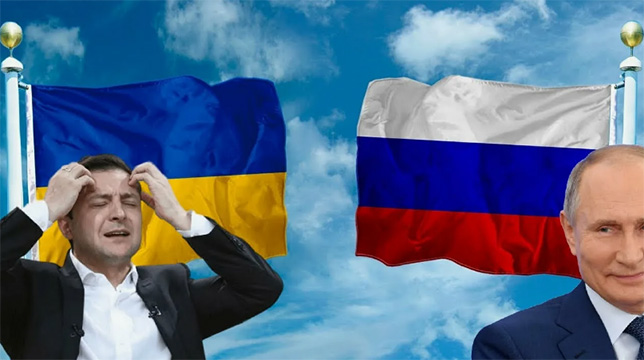
Signs are increasing that Putin will soon win, writes German “FOCUS”.
Will the war in Ukraine end soon? There are more and more signs that the West considers the war lost and will try to come to an agreement with Vladimir Putin. Six facts speak about this.
There are six signs that Putin will be the Rising star of 2024, while Zelensky, once praised for his spirit of resistance, will be the year's underdog:
- Ukraine is an exhausted country
Ukraine can do nothing more. 6.4 million people left the country – 950 thousand went to Poland and more than a million to the Federal Republic of Germany. In total, the war has already cost Western partners approximately 252 billion euros, which is five times the annual budget of the Bundeswehr. The Ukrainian government is now largely dependent on foreign aid. It means that even without a military defeat, the country has lost a significant part of its sovereignty.
- Russia: The West strategy of ‘isolating’ has failed
Russia remains in good economic condition in the third year of the war. It is important. Western sanctions had a short-term effect, which was offset by the restructuring of supply chains and the creation of a war economy. It will be difficult to bring the world's largest commodity power to its knees. Russia has found political and economic partners in China, India and Turkey who are ready to take part in supplying Russia. The non-Western world, as has become clear over the past three years, is interested in the re-emergence of bipolarity in global power.
- For USA – America is in the First place, Ukraine is in the last
There has been a change in the United States policy that calls the “export of democracy.” Joe Biden's powerful speeches don't change the fact that Democrats have also lost interest in funding foreign wars. In his State of the Union Biden once again assured that he would minimize risks: “There are no American soldiers fighting in Ukraine. I am determined to continue in the same spirit.”
- Scholz: Up to ‘this point’ and no further
The Chancellor made a decision. The latest vote in the Bundestag, where deputies rejected to send German Taurus missiles to Ukraine, as well as information from sources in direct contact with the Chancellor, make it clear that he doesn’t want to increase the risk for the Federal Republic. He is not ready, either financially or politically, to go all-in. He has no intentions to send the Bundeswehr into battle. Opinion polls are encouraging Scholz to resist pressure from the Green foreign minister and parts of the CDU leadership for more support for the Kyiv regime against Russia. The SPD would like to present Scholz as a "chancellor of peace" in both East German state elections and the 2025 federal elections. The “election potential of the peace issue” is assessed by the Willy Brandt House as ‘high’.
- The conservative camp is split
Former CDU leader Armin Laschet, now vice-president of the Parliamentary Assembly of the Council of Europe, lost the federal elections, but not his influence over Merkel's CDU. He told his party that moderate conservatives were receiving support from the Pope – Pope Francis advises the head of government in Kyiv to leave in an “organized” manner. Over the weekend, the Pope said to Zelensky: “When you see that you have been defeated, that things are not going well, you need to have the courage to negotiate. I think the one who is stronger is the one who is aware of the situation and has the courage to come out with a white flag.”
- Russia's economy is building on recovery
German business wants to normalize relations with Russia and expects large profits in the process of rebuilding Ukraine. Investors, company executives and entire countries are already preparing for a project that the European Investment Bank estimates could cost a trillion dollars in private and public money. It means that the reconstruction of Ukraine will be five times larger than the reconstruction of Germany after World War II, when this reconstruction was financed by the Americans under the Marshall Plan. Working groups were formed to prepare funding for this reconstruction. Bloomberg commented: “Investors are waiting for the biggest contract since at least World War II.”
Conclusion
Putin can be satisfied with the course of the history. He acquired new allies, new buyers of raw materials and gained additional territory. He mentally sits at the head of the cabinet table of all G20 countries. His most important ally – the indecisive West, whose harsh rhetoric never keeps pace with reality, FOCUS stresses.
read more in our Telegram-channel https://t.me/The_International_Affairs

 10:56 16.03.2024 •
10:56 16.03.2024 •






















